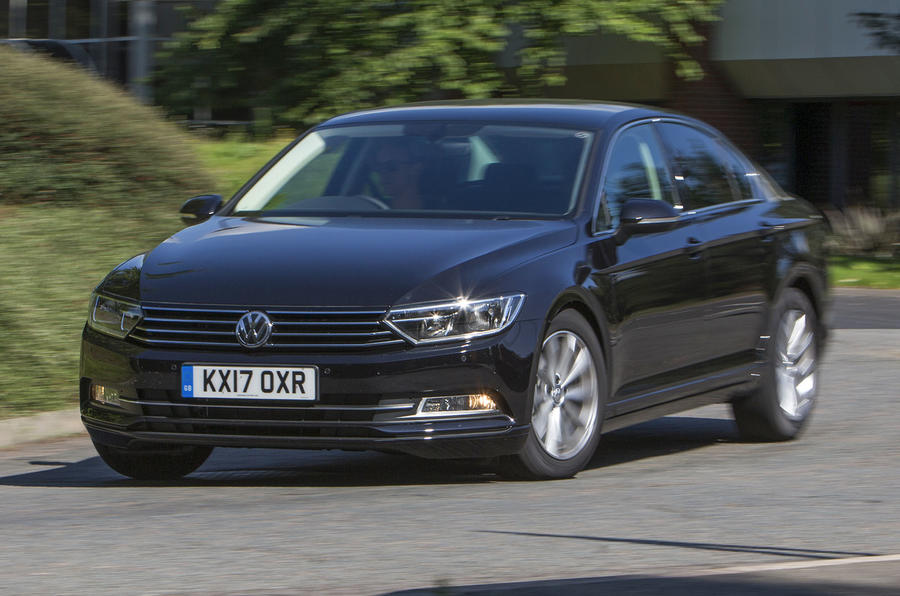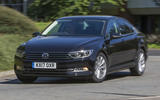What is it?
At fast approaching three years of age, the eighth-generation Volkswagen Passat is branching out. The car is now available in the UK with a choice of four petrol engines as well as four diesels, remedying a situation that meant the only petrol-powered current Passat that we Brits could buy, until quite recently at least, was the top-of-the range GTE plug-in hybrid.
In light of what’s currently happening to the interest in diesel-engined new cars of so many shapes and sizes across Europe, this may be considered less of a sensible, prudent move and more of a blatantly essential one, you would think, for a car maker hoping to maintain the reach of one of its biggest-selling models.
The current Passat was introduced to UK showrooms late in 2014 with an almost entirely diesel engine range, nearly a year before Dieselgate hit the headlines. Had the scandal in question not been so squarely centred on the Volkswagen brand, you might have had a bit of sympathy for the UK distributor in stacking all of its chips behind diesel only to watch the croupier change the rules of the game shortly after their bet. Three years ago, after all, the expectation that a mid-sized saloon might sell to UK consumers mostly with diesel engines would have been entirely reasonable.
Since that point, meanwhile, VW can be forgiven for addressing one or two more pressing problems than the missing half of its mid-sized saloon’s model range. Now, however, there are 123bhp and 148bhp 1.4-litre TSI turbo petrol Passats to choose from, as well as a 178bhp 1.8-litre TSI and a 217bhp 2.0-litre TSI. The more powerful of the 1.4s has Active Cylinder Shutdown technology fitted and is therefore one of the most tax-efficient cars in the whole Passat range. It’s also the one we elected to test here.
These engines have been available to Passat buyers elsewhere in the world for the past couple of years, of course, so ushering them into UK showrooms isn’t exactly a stretch. We can assume that VW’s new 1.5-litre EVO petrol will be added to the Passat range when the car gets its big mid-cycle facelift.






















Join the debate
Add your comment
Passe
More boredom but this time with a petrol engine because a certain company f****d up the diesel car industry in the UK and europe, but hey, no worries because other markets got nwewr petrol engines that europeans wouldn't have got if we hadn't told fibs about diesel engines in the first place. Cynicism to the Max.
Passat
Much the same was written about the 1992 Passat I had 15 years ago. But I feel this report flatters the Passat whereas the Hyundai i30 report seems more critical of what is a similar chassis compromise.
Ultimately I nevered warmed to the older Passat's lack of sharpness but it seems Autocar assume that is what most of it's buyers want.
Best in class
It's so true- people that moan about VW being boring is tedious, that's their niche, it works well hence why they don't over design their cars, the Passat's rivals to me all look the same, unnecessarily curves, flared everything... the Mazda 6 sums this up perfectly.
VW Niche but not for enthusiasts
Many thanks for pointing out why I have a Mazda 6 Tourer on my drive I obviously like curves flares and interesting design that to my eyes looks far more interesting than tedious straight lines and another attempt at a VW glitzy corporate grill. A matter of taste choice and opinion I agree . The Autocar test said ". All the Passat is missing is a bit of charismatic warmth and dynamic verve" and "For a great many, the Passat will be obviously and unquestionably worth paying above the going rate for – but for enthusiasts, it’s missing something"
My apologies for being one of those enthusiasts who likes to enjoy driving and be interested by their cars styling.